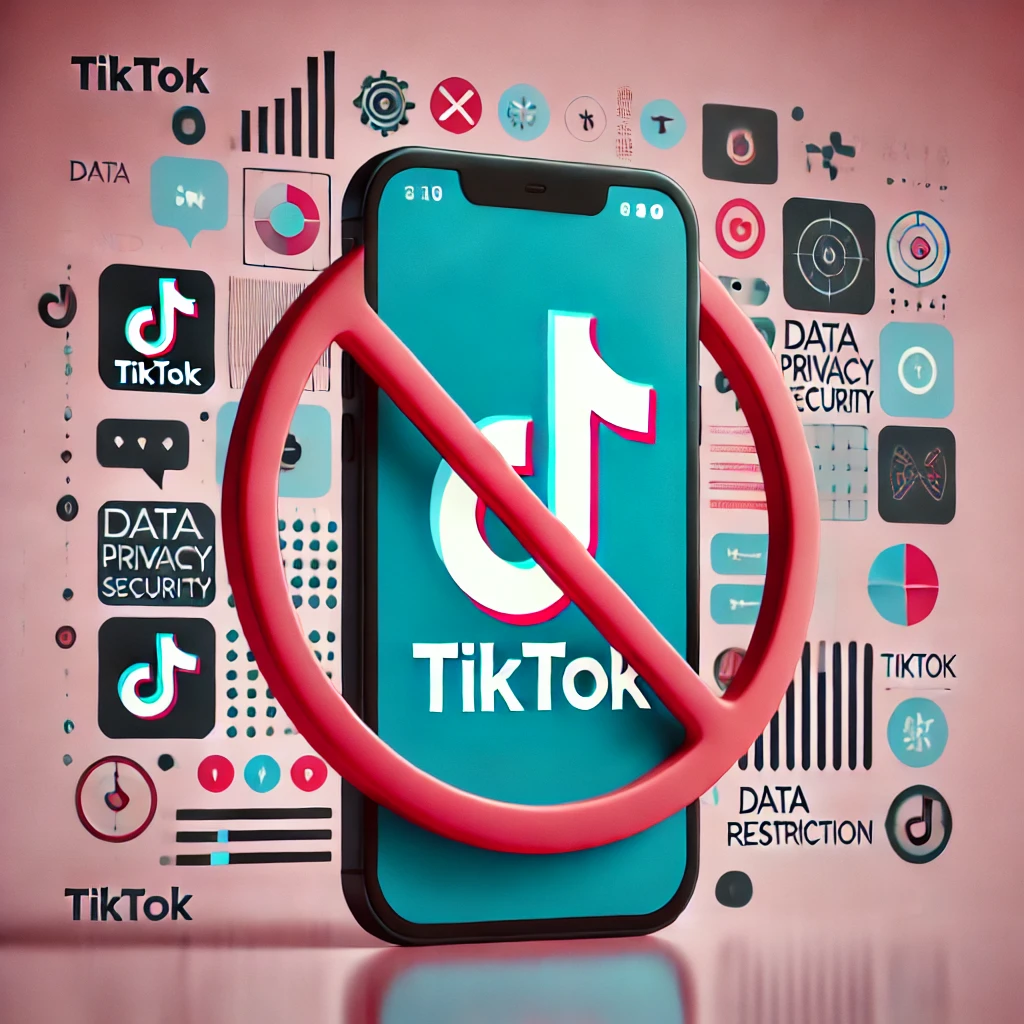TikTok has quickly become one of the most popular apps worldwide, captivating millions of users with its short, engaging video format. Despite its popularity, the app has faced potential bans and restrictions in various countries due to privacy concerns and national security risks. In this article, we’ll explore the status of TikTok bans, why governments are considering banning it, and what that means for its future.
Table of Contents:
- Why Is TikTok Being Considered for a Ban?
- Countries Where TikTok Is Banned or Restricted
- The Status of TikTok in the United States
- What Would a TikTok Ban Mean for Users?
- Can TikTok Be Banned Completely?
- How to Prepare for a Potential TikTok Ban
1. Why Is TikTok Being Considered for a Ban?
The conversation around banning TikTok stems from concerns over the app’s data privacy policies and its ties to China. TikTok is owned by ByteDance, a Chinese tech company. This has led to questions about whether the Chinese government could access TikTok users’ data, posing potential national security threats.
Key concerns include:
- Data Privacy: TikTok collects large amounts of data, including location, user activity, and personal information. Governments fear this data could be shared with the Chinese government.
- National Security: In some countries, there is concern that TikTok could be used as a tool for espionage or influence, especially through misinformation campaigns.
- Content Moderation: Some governments worry about how TikTok moderates content, with fears that political and social content could be manipulated.
2. Countries Where TikTok Is Banned or Restricted
Several countries have already taken steps to restrict or ban TikTok. Here’s a list of the most notable cases:
- India: India banned TikTok in 2020, citing national security concerns following a border dispute with China. The app has been permanently banned, and users in India no longer have access to it.
- Afghanistan: The Taliban government banned TikTok in 2022, claiming it was spreading « immoral content » to Afghan youth.
- Indonesia: TikTok was temporarily banned in Indonesia in 2018 due to inappropriate content. The ban was lifted after TikTok complied with local regulations, including content moderation.
- United States (Partial Ban): Several US states have banned TikTok from being used on government devices due to concerns about data privacy. However, a nationwide ban has yet to be implemented.
3. The Status of TikTok in the United States
In the United States, the possibility of a TikTok ban has been an ongoing topic of discussion. In 2020, the Trump administration attempted to ban TikTok, citing national security concerns. However, the ban was blocked by US courts, and ByteDance began negotiations to sell TikTok’s US operations to a US-based company.
Current Status:
- No Nationwide Ban Yet: As of 2024, TikTok is still operational in the US. However, some states have restricted its use on government devices, particularly for employees in sensitive positions.
- Potential Future Bans: With increasing tensions between the US and China, future attempts to ban TikTok could occur if privacy and security concerns persist.
4. What Would a TikTok Ban Mean for Users?
If TikTok were to be banned in a particular country, it would have significant consequences for users:
- Loss of Access: Users in the country where TikTok is banned would no longer be able to download or use the app. Existing installations could also be disabled through updates.
- Impact on Creators: Creators who rely on TikTok for their livelihood would lose their platform. This could affect their income and influence.
- Business Impact: Many businesses use TikTok for marketing, and a ban would limit their ability to reach a vast audience. Brands might need to shift their focus to other platforms like Instagram or YouTube Shorts.
- VPN Usage: In some cases, users might turn to VPNs (Virtual Private Networks) to bypass the ban, although this might not be a foolproof solution and could violate local laws.
5. Can TikTok Be Banned Completely?
Banning a platform like TikTok is challenging, especially in democratic countries where freedom of speech and access to information are protected rights. Here are the key challenges to a complete ban:
- Legal Challenges: Attempts to ban TikTok have faced significant legal hurdles. In the US, courts have blocked several attempts to restrict the app, citing constitutional rights.
- Technological Workarounds: Even if TikTok is banned, tech-savvy users could use VPNs or other tools to access the app, although this may not be legal in some regions.
- Global Presence: TikTok is a global platform, and banning it in one country doesn’t affect its availability in other regions. Users who depend on TikTok as part of their online presence might face challenges reaching global audiences if they rely heavily on the platform.
6. How to Prepare for a Potential TikTok Ban
If you’re concerned about TikTok being banned in your country, there are steps you can take to prepare:
- Backup Your Content: Ensure that all your TikTok videos are backed up to your phone or another storage device. You can also repurpose this content for other social media platforms.
- Explore Alternative Platforms: Consider diversifying your presence across other social media platforms such as Instagram Reels, YouTube Shorts, or Snapchat. This will ensure that you maintain your online audience if TikTok is banned.
- Stay Informed: Keep an eye on local government policies and legal developments regarding TikTok. Staying informed will help you react quickly if a ban is announced.
- Engage with TikTok’s Support: TikTok frequently updates its privacy policies and security measures. Engaging with their support and reading up on the latest changes may help reassure users or reduce the likelihood of a ban.
Conclusion
While TikTok continues to thrive globally, its future remains uncertain in some countries due to concerns over data privacy and national security. For users and creators alike, it’s crucial to stay informed about developments and consider alternatives to protect your content and audience.
As the platform evolves and governments continue to scrutinize its operations, understanding the reasons behind potential bans will help you navigate any future changes that may come.

